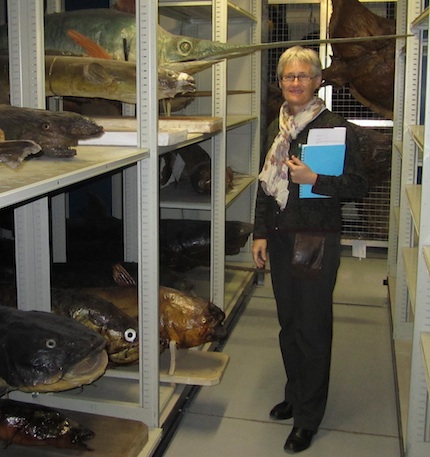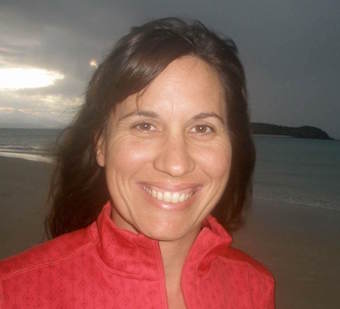
Jennifer Ovenden
Jennifer Ovenden is an Associate Professor at the University of Queensland (Brisbane, Australia) and head of the Molecular Fisheries Laboratory. Her undergraduate honours degree was from the Australian National University in Canberra and PhD from the University of New South Wales in Sydney. Over more than 30 years, Jennifer has worked on the genetics of populations of wild animals. The majority of projects have focussed on species harvested (or impacted) by fisheries in Australia and other nations in the southern hemisphere. Species include molluscs, crustaceans, bony fish, sharks and rays. Jennifer has worked with allozyme loci, mitochondrial DNA, microsatellites and lately genomic data. Jennifer worked for the Queensland government as a research scientist for many years, as well as at the University of Tasmania in Hobart, Tasmania. Jennifer is Associate Editor – “Marine and Freshwater Research” and “Fish and Fisheries” as well as a member of the scientific advisory board of the Australian SeaWorld Research and Rescue Foundation. Jennifer was a sponsored visiting scientist at the Museum of Natural History in Paris in 2011, 2012 and 2013.
Related posts:
- Ocean currents and the population genetic signature of fish migrations (3/2/2020)
- New paper about Ne/N ratios in New Zealand snapper (16/5/2019)
- New book about research on elasmobranchs (23/10/2018)
- Andy Moore visits MFL (28/6/2018)
- Collaborative visit comes to an end (26/4/2018)
- Professor Dan Heath visits MFL (21/3/2018)
- MFL welcomes intern from Brazil (10/11/2017)
- New version of NeEstimator coming soon (1/11/2017)
- Welcome to Greg Maes (26/10/2017)
- Genomic data makes a significant contribution to seafood security (10/10/2017)
Christine Dudgeon
Chris’ work focusses on the ecology and evolution of marine populations and species, and their application to conservation and fisheries management. Chris employs a suite of techniques including genetics, acoustic telemetry, conventional and natural tagging (mark-recapture), and statistical modelling to investigate what comprises a population for marine species and how this changes in space and time, as well as identifying species and speciation processes. Chris obtained her undergraduate and honours degrees at James Cook University (JCU) and subsequently worked as a research assistant at JCU and the Australian Institute of Marine Science. Chris obtained her PhD at The University of Queensland (UQ) focusing on the ecology of the zebra shark in association with The Molecular Fisheries Laboratory (completed 2009). Currently, Chris is working on Project Manta in the Molecular Fisheries Laboratory at UQ.
Related posts:
- Welcome to Greg Maes (26/10/2017)
- World pays attention to research on shark reproduction (24/1/2017)
- Shark mother produces pups with mate then without. (17/1/2017)
- Doing science with the community (27/7/2015)
- A link found between DNA and abundance for sharks in Queensland (20/7/2015)
- Spot the leopard shark (23/1/2014)

